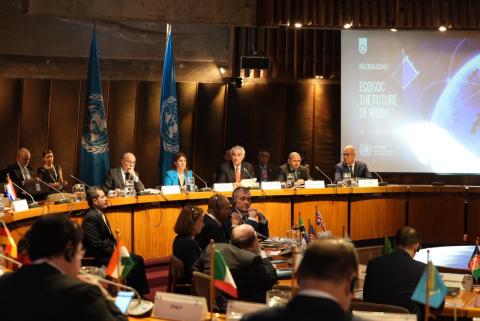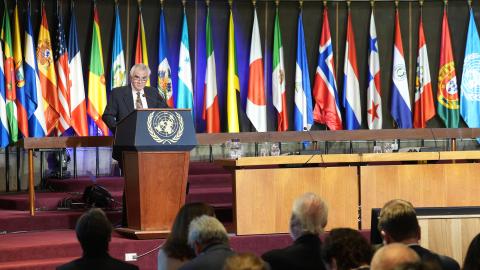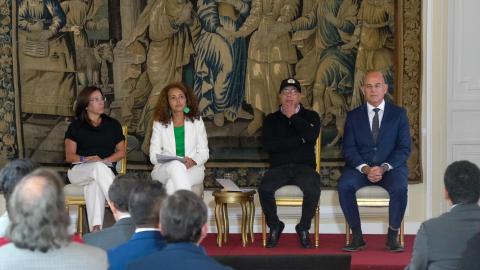News
During a side event today to the 2019 High-Level Political Forum on Sustainable Development in New York, the Executive Secretary of the Economic Commission for Latin America and the Caribbean (ECLAC), Alicia Bárcena, said that the 2030 Agenda is complex and that the support UN member States require to meet the Agenda’s goals must be integrated, coordinated and multilevel.
At the event entitled “Beyond July: an integrated support to member States in the implementation of the 2030 Agenda,” representatives of the governments of Chile, Guatemala and Guyana, along with resident coordinators of the United Nations system in those countries, debated with officials from ECLAC and the UN Development Coordination Office on how best the world organization can support the nations of Latin America and the Caribbean on their path toward sustainable development for all.
The event was moderated by Alicia Bárcena, who reminded participants that the cornerstone of the implementation of the 2030 Agenda is the integration of its Sustainable Development Goals (SDGs) into national development plans and budgets, and in their investment schemes, with support from the UN Development System at the local and regional level for the production of methodologies, data, capacity building and the organization of meetings to enable the countries to strengthen their abilities to put into practice the necessary actions and policies to attain the SDGs.
In this regard, Bárcena explained that in the particular case of ECLAC, the institution has lent its support to countries in the presentation of their Voluntary National Reviews (VNRs) on progress made on the 2030 Agenda. In addition, the resident coordinators in those countries have collaborated on the exchange of experiences, with special emphasis on actions developed to meet the SDGs under review this year (SDG 4, 8, 10, 13, 16 and 17).
In 2019, Chile, El Salvador, Guatemala, Guyana and Saint Lucia are presenting their reports – some for the second time (Chile and Guatemala) – while in previous years, Colombia, Mexico and Uruguay presented theirs.
“Collaboration among all stakeholders is crucial. We at ECLAC are supporting this process through the annual convening of the Regional Forum for Sustainable Development – the most recent edition held in Santiago, Chile last April – submitting analytical products and policy recommendations on key development issues on the 2030 Agenda, and through peer learning in the preparation of the VNRs,” she said.
Event participants included Miguel Angel Moir, Secretary for Planning and Programming of the Office of the President of Guatemala; Ambassador Troy Torrington Director, Multilateral & Global Affairs Ministry of Foreign Affairs, Guyana; Ambassador Milenko Skoknic, Permanent Representative of Chile to the United Nations; and Christian Salazar, Regional Director for Latin America and the Caribbean of the Development Coordination Office (UN DCO).
The UN resident coordinators for Chile, Guatemala and Guyana also participated: Silvia Rucks, Rebeca Arias and Mikiko Tanaka, respectively.



